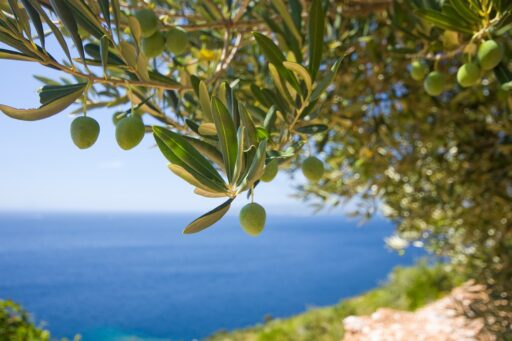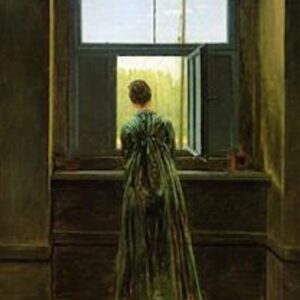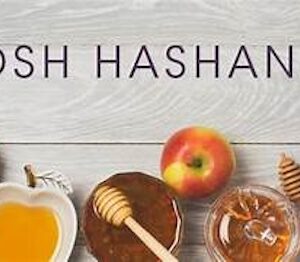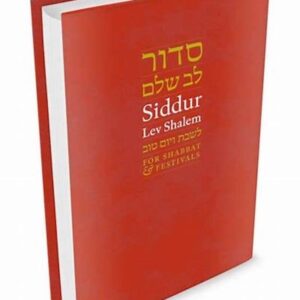Since October 7, 2023, the world has been focused on the Holy Land. And not in a positive or hopeful way. So what better time for Bret Lott’s latest book—Gather the Olives: On Food and Hope and the Holy Land—to come out? As he notes in his foreword, Lott delivered the manuscript to his publisher in the summer of 2023, when it was possible to find in Israel the subtitle’s “hope.” And find it he does. In a series of vignettes about his and his wife Melanie’s times living in Jerusalem, Lott focuses on foods, people, and the blessings of both.
In fact, the book’s first spoken word is “Shalom” (“peace”): a restaurant owner’s greeting to Lott as he comes in for breakfast. In another chapter, during one of the many bus tours that he and Melanie take, they visit a store in Galilee selling olive products made by a co-op of Arab and Israeli women. A spokeswoman for the co-op relates its history and goals, and the visitors are amazed that “Arabs and Jews can be brought together in a meaningful and purposeful and redemptive way, despite all the apparati hard at work to keep them apart. We are blessed by this fact.” Then the visitors are offered bowls of olive oil in a mixture of herbs and spices called za’atar, of which Lott writes, “Hope. Here in a bowl before me.” Finally, as the bus leaves: “we are quiet for the fact we have seen real peace between Arabs and Jews, peace brought about by women.”
“Peace” returns as an epithet for food in the book’s penultimate chapter, when another tour group is offered just-picked cherries. Lott describes the flavor as he tries one: “a small exuberant burst upon the tongue, bright and sweet and deep and carrying with it all of time, the richness of this earth, the peace it offers, the bounty, the goodness.”
And this chapter also relates the story of a very different kind of peace: one that’s unexpectedly international. Their tour group is now visiting Ziv Medical Center: an Israeli hospital near the border with Syria. The hospital’s director gives them a presentation. First he mentions the variety of people in the region that the hospital serves: “Muslims and Jews and Christians and Druze, his medical staff likewise made up of people from these same groups.” Then he tells them a story: about how his hospital came to serve Syrian soldiers and even civilians beginning in 2013, the second year of the Syrian civil war. Some IDF (Israeli Defense Forces) soldiers patrolling the border fence had noticed seven Syrian soldiers—all seriously wounded—on the Israeli side of the wire border fence. These Syrians were brought to Ziv Medical Center for treatment. And from then on more and more injured Syrian soldiers were crossing the border to get help at Ziv, then wounded Syrian civilians as well. Hearing all this from the director, Lott continues:
“Then I say it.
“I am too loud. I am not thinking about the others or any kind of protocol.… I say it, and loud, because they are the words that come to me in that moment. Too loud. But I say it just the same:
‘Even your enemies know you are good.’”
Reading this episode (and re-reading it, because it’s so powerful), I’m struck by two things. One is about the content: the goodness of these Israelis at Ziv Medical Center. Because it has been hard during the current war against the Palestinians in Gaza to see Israelis as good. The other is about style: Lott’s choice of present tense to recount this incident, which gives it a heightened immediacy.
Many more of the book’s episodes are narrated in present tense. Recall the visit to the olive co-op that I touched on above. And right at the book’s beginning, on the buffet breakfast in the restaurant: “I stand for a few moments, surveying it all. Watermelon, the deep matte red of all these cubes… And here is a bowl of dates—dates for breakfast!—shiny and the color of teak, their skins slightly puckered.… Cheeses then: white and yellow and orange wedges, a small wheel crusted in what may be ash, another in peppercorns, another wheel chalky white with sprigs of herbs on top. Typical fare, I’m thinking, but still a marvel of color and arrangement…”
And, in another chapter, this passage describing food:
“This plate of fruit seems a kind of miracle, for no other reason than that it is beautiful, and simple, and true. The fruit: A handful of fresh red cherries, their stems thin grace notes of green; five apples, each one a rich eddy of light green and deep red; eight or ten baby cucumbers, shiny and perfect and cucumber green.”
Then there’s Lott’s account of his hike with Melanie in the ancient Jordanian city of Petra: “We start down the slot canyon—the siq—in the early morning, the high high cliffs striated reds and beiges and mauves and browns and more reds, the canyon a narrow gallery of curving walls like huge wind-danced sheets frozen in stone.”
As I keyboard these passages, I’m noticing their sense of immediacy—as if we’re right there with Lott during these experiences. But I’m also noticing the lusciousness of his language. Of course, this isn’t a constant in the book; too much of it would make the book feel overwritten. But Lott, master writer that he is, knows when and for how long to let his language play scrumptious passages, rich and full like a few bars of Chopin or Brahms within a Mozart symphony.
Lending his language to what is good and beautiful and hopeful in the Holy Land: this is Lott’s gift to us—especially at this tense and fearful time.
Peggy Rosenthal has a PhD in English Literature. Her first published book was Words and Values, a close reading of popular language. Since then she has published widely on the spirituality of poetry, in periodicals such as America, The Christian Century, and Image, and in books that can be found here





